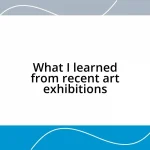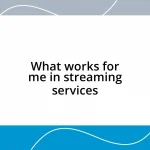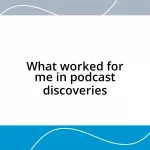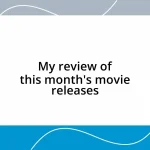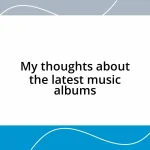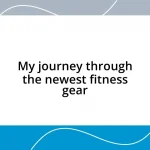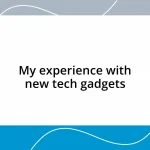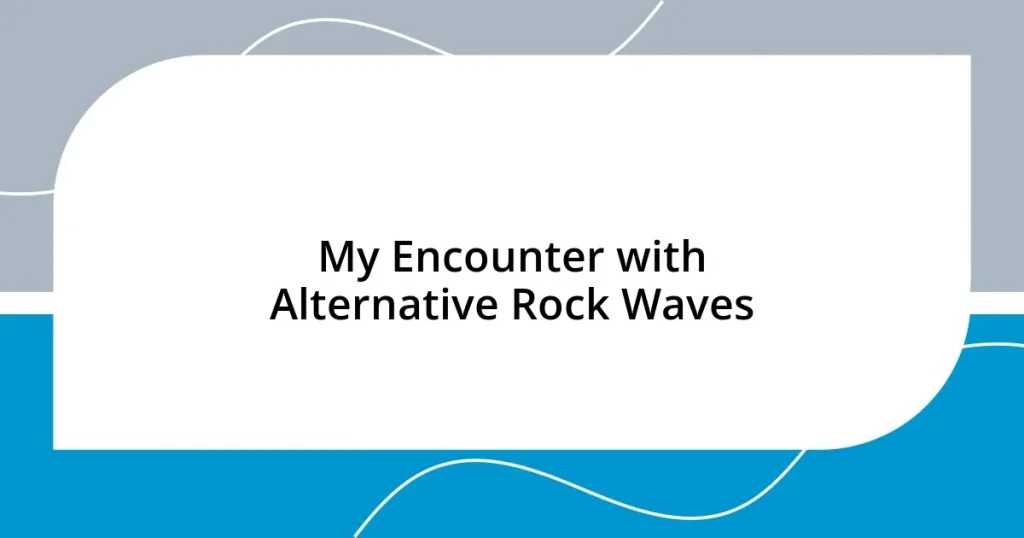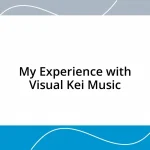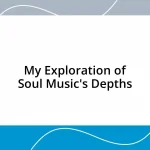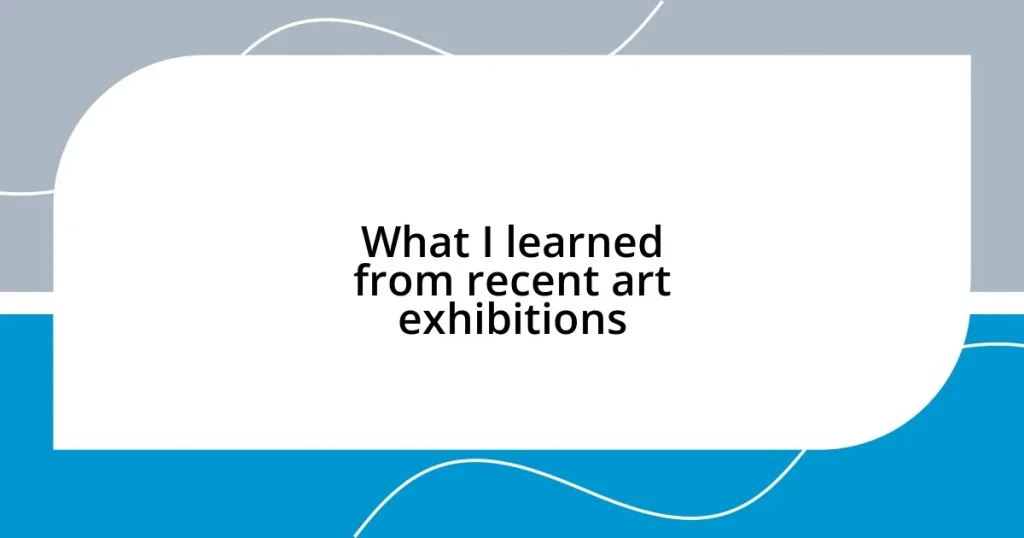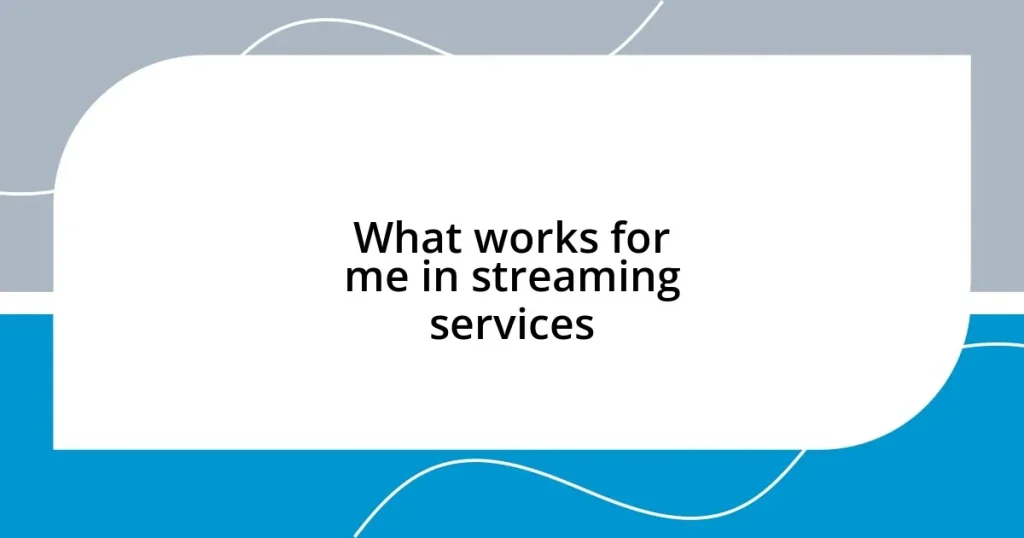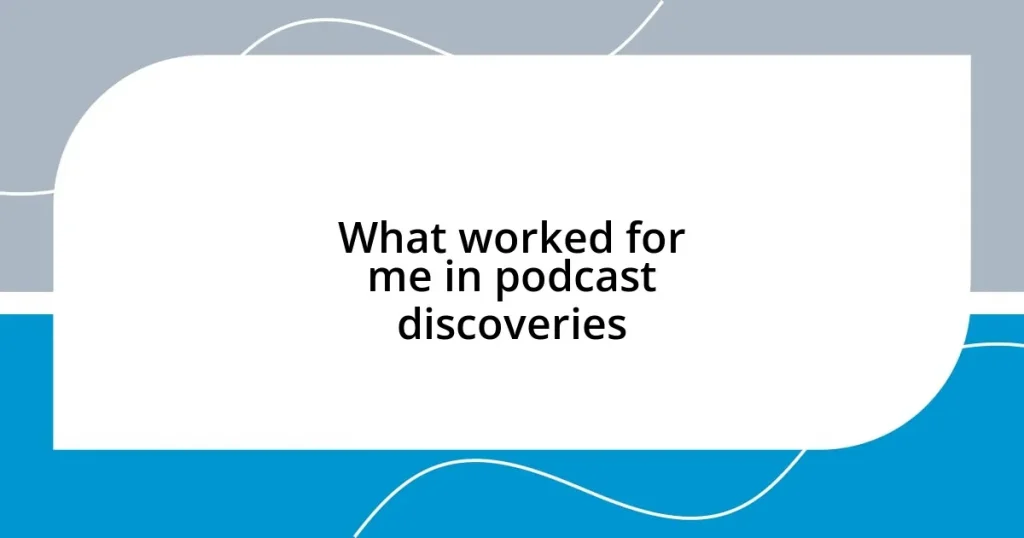Key takeaways:
- Alternative rock emerged from the late 1970s and 1980s’ underground scene, influenced by punk rock.
- Key milestones include the mainstream breakthrough of grunge in the early 1990s and the rise of Britpop in the mid to late 1990s.
- Influential bands such as Nirvana, Radiohead, and Red Hot Chili Peppers have significantly shaped the genre with their unique sounds and themes.
- Engagement with the alternative scene extends beyond music, fostering community through local shows, collaborations, and discussions.
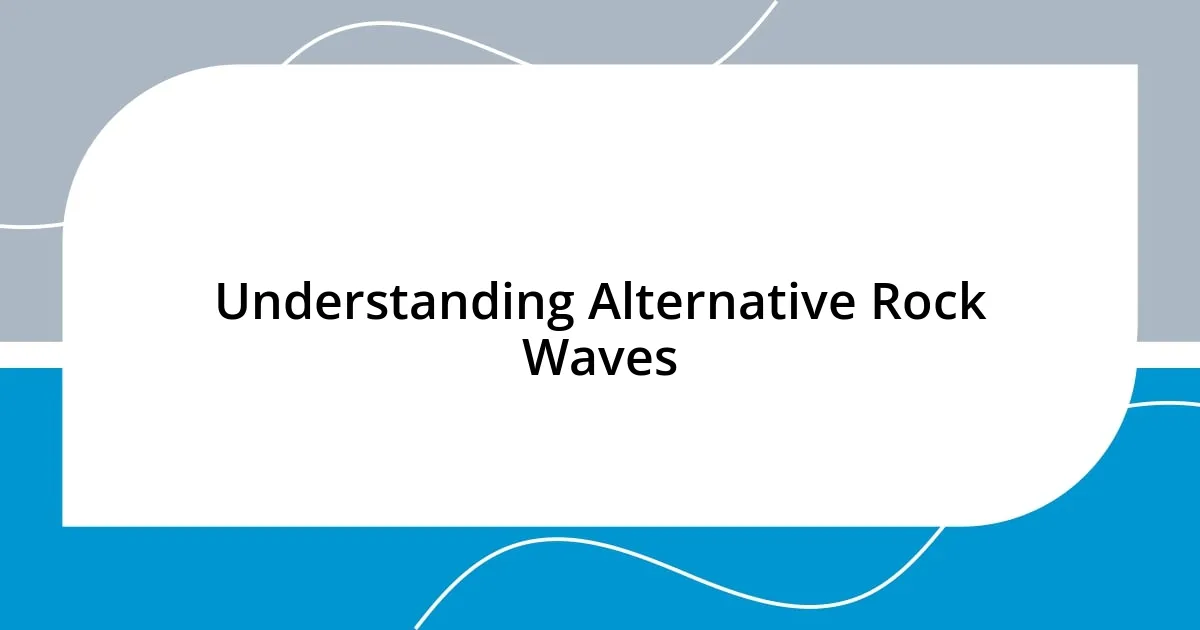
Understanding Alternative Rock Waves
Alternative rock waves represent a dynamic evolution in music, reflecting the cultural shifts of each era. I remember the first time I heard a band like Nirvana; the raw emotion and edgy sound struck a chord with me. It made me question what mainstream music had been lacking all along—authenticity and depth.
As I dove deeper into the genre, I started noticing how alternative rock paved the way for other subgenres. For instance, I often wonder how bands like Radiohead and Red Hot Chili Peppers blend elements like electronic sounds and funk into their music. This fusion creates a refreshing and complex sound that resonates differently with each listener.
The beauty of alternative rock lies in its ability to challenge norms while embracing individuality. I’ve often found solace in its lyrics, which echo my own feelings of rebellion and introspection. Isn’t it fascinating how these “waves” can carry such a significant emotional weight, influencing not just our playlists but our very perspectives?
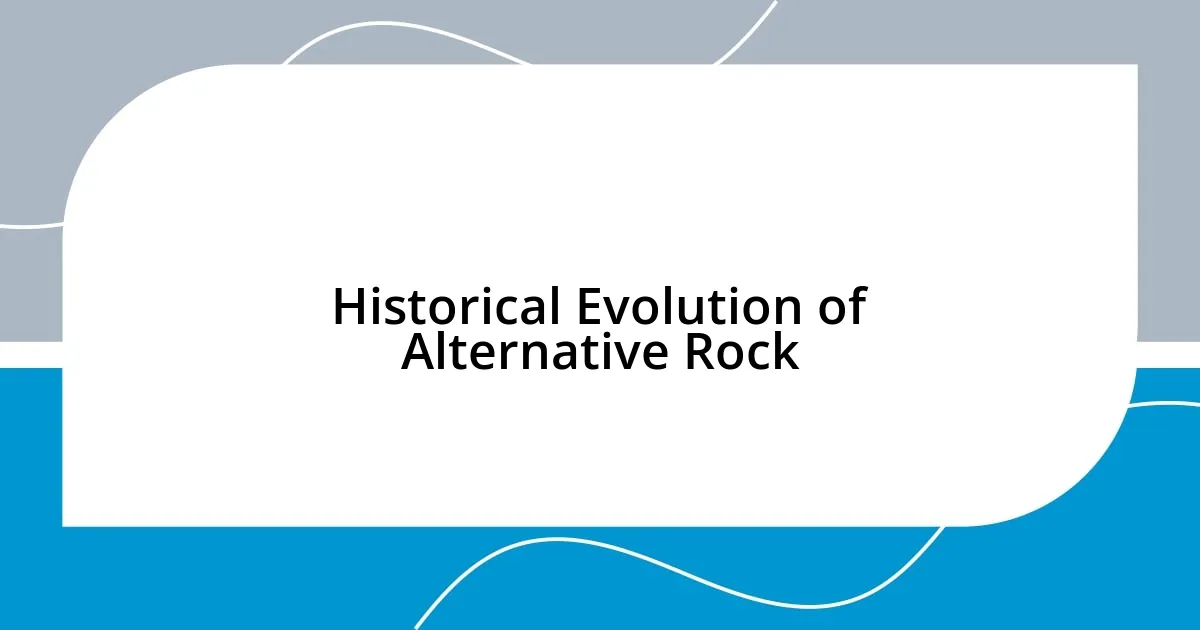
Historical Evolution of Alternative Rock
Alternative rock evolved from the underground music scene in the late 1970s and 1980s, shaped by bands experimenting with new sounds and styles. I vividly recall discovering the vibrant energy of punk rock and how it laid the groundwork for what we now know as alternative rock. It was fascinating to see how artists like R.E.M. and The Smiths turned introspective lyrics into mainstream hits, tapping into the emotions of a generation feeling disconnected from conventional music.
Here are some pivotal moments in the historical evolution of alternative rock:
- Late 1970s-1980s: The emergence of punk rock, with bands like The Clash, introduces a raw, unfiltered approach to music.
- 1980s: College rock starts gaining traction, with groups such as R.E.M. bringing introspective lyrics and jangly guitars to a wider audience.
- Early 1990s: The genre breaks into the mainstream with grunge bands like Nirvana and Pearl Jam, defining a new era of sound and emotion.
- Mid to Late 1990s: The rise of Britpop, featuring bands like Oasis and Blur, seizes cultural significance, evolving into a global phenomenon.
- 2000s: The diversification of alternative rock occurs, as bands explore various subgenres, blending elements like electronic and indie sounds.
Reflecting on these moments, I find myself rekindling memories of countless concerts where I was lost in the rhythm, feeling the electricity of the crowd. The evolution of alternative rock resonates deeply within me, as each era captures its own zeitgeist, playing an integral role in shaping my musical preferences and emotional journeys.
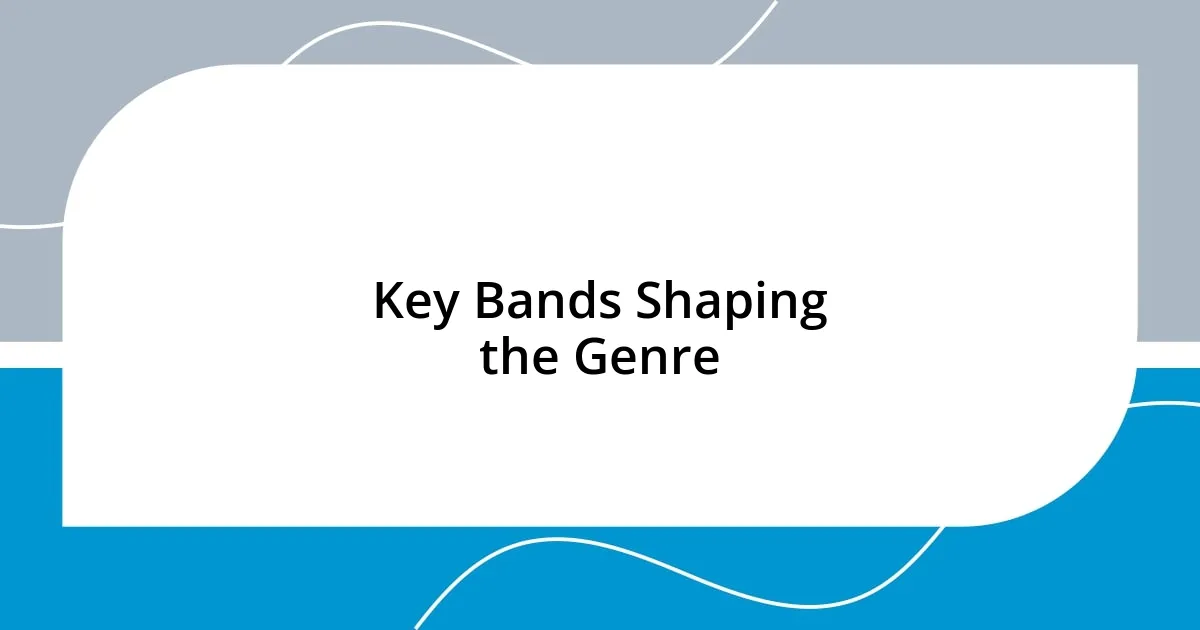
Key Bands Shaping the Genre
When I think of key bands that have significantly shaped alternative rock, I can’t help but spotlight Nirvana. Their seminal album Nevermind turned the music world on its head, bringing grunge into the mainstream. I recall the first time I belted out “Smells Like Teen Spirit” with friends, feeling the cathartic release of angst and rebellion—it was truly electrifying.
Another game-changer in the genre is Radiohead. Their experimental sound and introspective lyrics resonate with so many of us looking for something deeper. I vividly remember listening to OK Computer on a rainy afternoon, lost in thoughts about life and technology, and recognizing how music can offer profound commentary on our times.
Then there’s the Red Hot Chili Peppers, who seamlessly incorporate funk into their music. Their track “Under the Bridge” still transports me back to a time when I felt both lost and hopeful. It’s a testament to how alternative rock can blend genres while still preserving a sense of identity and storytelling that invites listeners like me to reflect on their lives.
| Band | Key Contribution |
|---|---|
| Nirvana | Popularized grunge with raw emotion in Nevermind |
| Radiohead | Introduced experimental sounds and themes in OK Computer |
| Red Hot Chili Peppers | Infused funk into rock with hits like “Under the Bridge” |
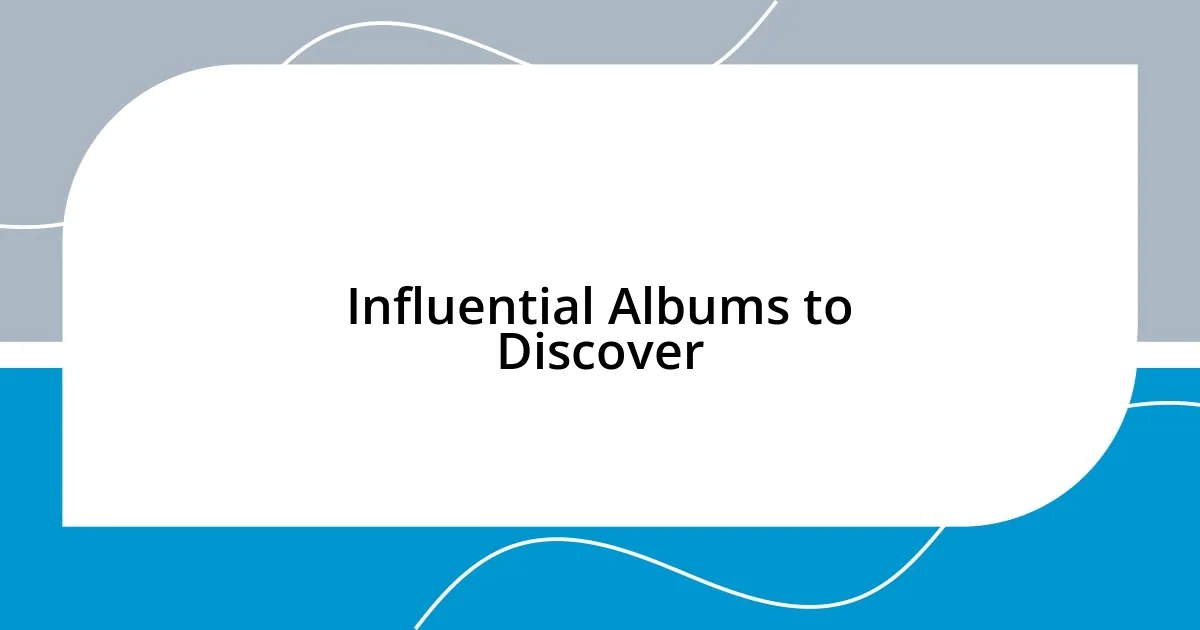
Influential Albums to Discover
The influence of The Cure’s Disintegration can’t be understated; it’s like a sonic journey through melancholy and beauty. I remember lying on my bedroom floor with headphones on, feeling each note wash over me, as if the music was a comforting friend during some of my lonelier days. Songs like “Lovesong” remain timeless, resonating with those of us who find solace in deep emotion and atmospheric sound.
Another groundbreaking album is OK Go’s self-titled debut, which combined catchy melodies with clever lyrics. I still smile when I think about dancing with friends in the living room, our laughter echoing as we tried to harmonize with “Get Over It.” This record opened my eyes to how alternative rock can balance profound themes with infectious energy, creating an experience that brings people together.
Lastly, I can’t help but mention Interpol’s Turn on the Bright Lights. The first time I played it, I was instantly captivated by the haunting guitar riffs and brooding lyrics, reminiscent of late-night city strolls. It sparked a realization: music can perfectly capture the essence of a moment and evoke emotions we sometimes struggle to articulate. How many times have you found yourself lost in an album, feeling as though it understands you better than anyone else?
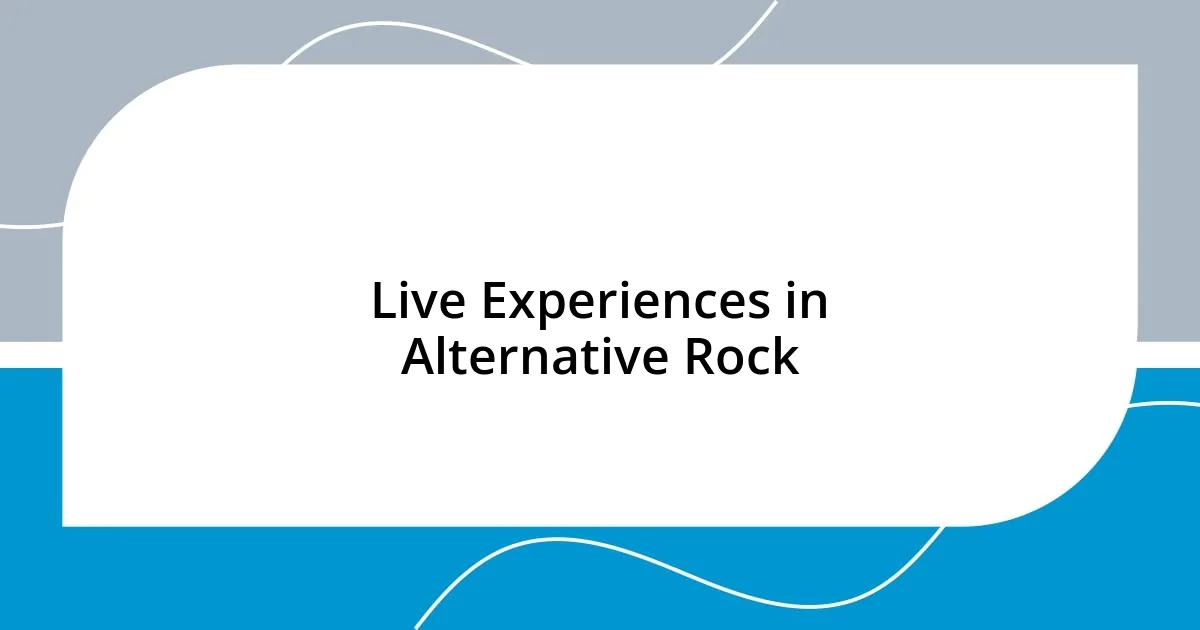
Live Experiences in Alternative Rock
There’s something undeniably special about attending a live alternative rock concert. I remember my first experience at a small venue where a local band played with such raw intensity. The energy in the room was palpable, and as I swayed with the crowd, I felt this incredible connection, like we were all part of something bigger—our collective love for music transcending the everyday grind of life.
One of my most cherished memories was at a festival where I witnessed the magic of a well-known band. As the lights dimmed and the opening notes echoed, I felt the anticipation in the air. When they launched into their hit song, the entire audience erupted in harmony, every voice blending together. It was like we were singing our stories, our struggles, and our triumphs all in one powerful moment. Have you ever felt that rush in a crowd, where it’s not just the music, but the shared experience that makes it unforgettable?
In contrast, I’ve also attended concerts where the intimacy of the venue allows for a more personal experience. I recall a show in a cozy bar where the frontman shared anecdotes between songs, making us feel like old friends. It’s in these moments that lyrics take on new meanings, and I couldn’t help but relate to his stories of heartache and hope. Isn’t it fascinating how music can evoke such a deep emotional response by simply being performed live, creating a unique bond between the artist and the audience?
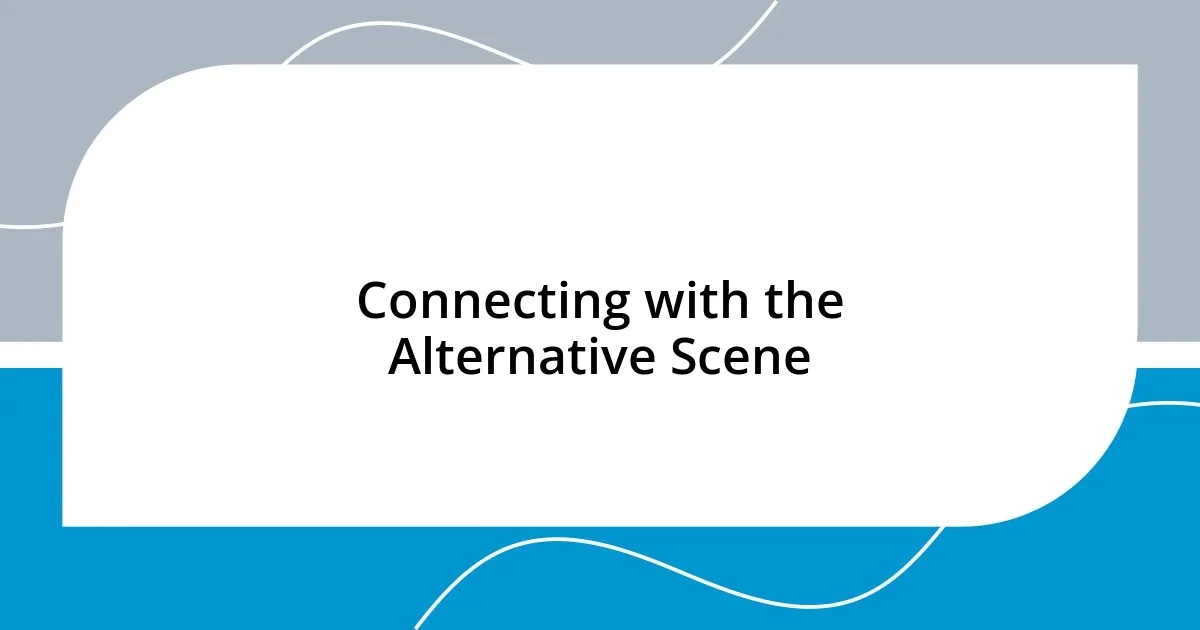
Connecting with the Alternative Scene
Connecting with the alternative scene goes beyond just the music; it’s about immersing yourself in a lifestyle and community that thrives on shared passion. I still remember discovering a local record store that felt like a hidden treasure trove, filled with vinyl and posters of my favorite bands. I spent hours flipping through the records, chatting with the staff who seemed to know every detail about the artists they adored. Have you ever found a place that feels like an extension of your own identity, where you can connect with others who share your love for alternative rock?
Attending local shows has always been a lifeline for me, where discovering emerging talent feels like unearthing gems before they shine on larger stages. I recall one night, standing in a crowded basement venue, surrounded by fellow enthusiasts who were just as excited to hear a fresh band. The sweat, the cheers, the pure joy of discovering something new—it made me realize that the alternative scene is vibrant and alive, pulsing with energy. Isn’t it thrilling to share a moment with strangers who become friends, united by the thrill of captivating music?
Collaboration within this community is also a unique aspect that has influenced me deeply. I’ve seen how musicians with diverse backgrounds come together to create something truly magical. I remember a community event where artists collaborated on an album, weaving their different sounds and stories into one cohesive piece. It struck me how alternative rock, at its core, embraces experimentation and individual expression—reminding us that connection is about more than just shared tastes; it’s about celebrating our greater differences. Isn’t it fascinating to see how music can bring such a diverse group together for creativity?

Resources for Deepening Knowledge
When it comes to deepening knowledge about alternative rock, I always recommend diving into documentaries and books that explore the genre’s history. One unforgettable documentary I watched was a deep dive into the Seattle grunge scene. I was struck by the stories behind the music and how social issues shaped the lyrics. Have you ever watched something that completely reshaped your perspective on a topic? It’s incredible how films can open up new avenues of understanding.
Podcasts are another treasure trove for alternative rock enthusiasts like us. I remember listening to an episode featuring an interview with a legendary guitarist whose riffs defined a generation. Hearing him narrate the creative process behind his most famous tracks not only inspired me but also gave me a glimpse into the emotional struggles he faced during the songwriting process. It really made me reflect—how much do we overlook the personal stories behind the chords we love?
Apart from visual and audio resources, I find engaging in online forums and communities to be invaluable for learning. They can lead to rich discussions that offer different viewpoints. I once participated in an online chat about my favorite band, and the insights shared by fellow fans enriched my appreciation for their music. Isn’t it amazing how connecting with others can enhance our understanding? Embracing these discussions can truly elevate your journey into the vibrant world of alternative rock.

